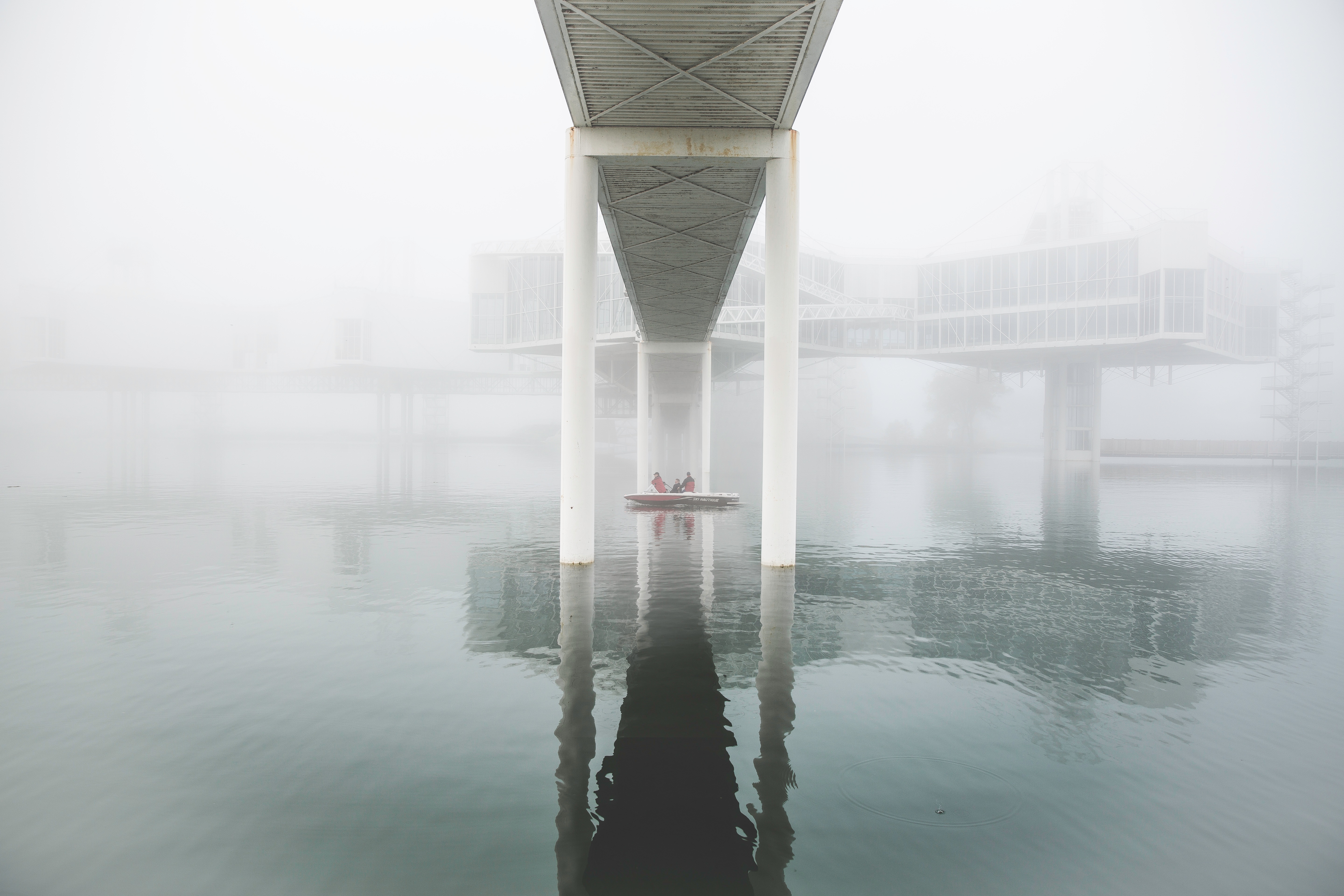Long-distance communication
The Starting Point
Speech, that essential medium of the developed mentality, had two distinct modes in this world.
![]()
For short-range communication, rhythmic underwater emissions of gas from a vent in the rear of the organism were heard and analyzed by means of underwater ears. Long-distance communication was carried on by means of semaphore signals from a rapidly agitating tentacle at the mast head.
It was a strange experience to enter the mind of an intelligent ship to see the foam circling under one’s own nose as the vessel plunged through the waves, to taste the bitter or delicious currents streaming past one’s flanks, to feel the pressure of air on the sails as one beat up against the breeze, to hear beneath the water-line the rush and murmur of distant shoals of fishes, and indeed actually to hear the sea-bottoms configuration by means of the echoes that it cast up to theunder-water ears.
![]()
Sometimes we saw two of the living ships fighting, tearing at one another’s sails with snake-like tentacles, stabbing at one another’s soft “decks” with metal knives, or at a distance firing at one another with cannon.
Bewildering and delightful it was to feel in the presence of a slim female clipper the longing for contact, and to carry out with her on the high seas the tacking and yawing, the piratical pursuit and overhauling, the delicate, fleeting caress of tentacles, which formed the love-play of this race.
![]()
At the time of our visit natural sails were beginning to be aided by a power unit and propeller which were fixed to the stern.
Great cities of concrete docks had spread along many of the coasts, and were excavated out of the hinterlands.
We were delighted by the broad water-ways that served as streets in these cities. They were thronged with sail and mechanized traffic, the children appearing as tugs and smacks among the gigantic elders.
The Starting Point
Speech, that essential medium of the developed mentality, had two distinct modes in this world.

For short-range communication, rhythmic underwater emissions of gas from a vent in the rear of the organism were heard and analyzed by means of underwater ears. Long-distance communication was carried on by means of semaphore signals from a rapidly agitating tentacle at the mast head.
It was a strange experience to enter the mind of an intelligent ship to see the foam circling under one’s own nose as the vessel plunged through the waves, to taste the bitter or delicious currents streaming past one’s flanks, to feel the pressure of air on the sails as one beat up against the breeze, to hear beneath the water-line the rush and murmur of distant shoals of fishes, and indeed actually to hear the sea-bottoms configuration by means of the echoes that it cast up to theunder-water ears.

Sometimes we saw two of the living ships fighting, tearing at one another’s sails with snake-like tentacles, stabbing at one another’s soft “decks” with metal knives, or at a distance firing at one another with cannon.
Bewildering and delightful it was to feel in the presence of a slim female clipper the longing for contact, and to carry out with her on the high seas the tacking and yawing, the piratical pursuit and overhauling, the delicate, fleeting caress of tentacles, which formed the love-play of this race.

At the time of our visit natural sails were beginning to be aided by a power unit and propeller which were fixed to the stern.
Great cities of concrete docks had spread along many of the coasts, and were excavated out of the hinterlands.
We were delighted by the broad water-ways that served as streets in these cities. They were thronged with sail and mechanized traffic, the children appearing as tugs and smacks among the gigantic elders.
A strange experience
A Busy World
The organizing of communal fishing expeditions, the invention of traps, the making of lines and nets, the practice of agriculture, both in the sea and along the shores, the building of stone harbors and work-shops, the use of volcanic heat for smelting metals, and of wind for driving mills, the projection of canals into the low islands in search of minerals and fertile ground, the gradual exploration and mapping of a huge world, the harnessing of solar radiation for mechanical power, these and many other achievements were at once a product of intelligence and an opportunity for its advancement.
![]()
It was strange and terrifying to be caught in a hurricane, to feel the masts straining and the sails threatening to split, while the hull was battered by the small but furious waves of that massive planet. It was strange, too, to watch other great living ships, as they plowed their way, heeled over, adjusted the set of their yellow or russet sails to the wind’s variations; and very strange it was to realize that these were not man-made objects but themselves conscious and purposeful.
![]()
Strange, to come up alongside, close-hauled, grapple her to one’s flank, and board her with sexual invasion. It was charming, too, to see a mother ship attended by her children. I should mention, by the way, that at birth the young were launched from the mother’s decks like little boats, one from the port side, one from the starboard. Thenceforth they were suckled at her flanks. In play theys wam about her like ducklings, or spread their immature sails. In rough weather and for long voyaging they were taken aboard.
![]()
It was in this world that we found in its most striking form a social disease which is perhaps the commonest of all world-diseases — namely, the splitting of the population into two mutually unintelligible castes through the influence of economic forces. So great was the difference between adults of the two castes that they seemed to us at first to be distinct species, and we supposed ourselves to be witnessing the victory of a new and superior biological mutation over its predecessor. But this was far from the truth.
Triumph in a Sub-Galaxy
Chapter 4
A Busy World
The organizing of communal fishing expeditions, the invention of traps, the making of lines and nets, the practice of agriculture, both in the sea and along the shores, the building of stone harbors and work-shops, the use of volcanic heat for smelting metals, and of wind for driving mills, the projection of canals into the low islands in search of minerals and fertile ground, the gradual exploration and mapping of a huge world, the harnessing of solar radiation for mechanical power, these and many other achievements were at once a product of intelligence and an opportunity for its advancement.

It was strange and terrifying to be caught in a hurricane, to feel the masts straining and the sails threatening to split, while the hull was battered by the small but furious waves of that massive planet. It was strange, too, to watch other great living ships, as they plowed their way, heeled over, adjusted the set of their yellow or russet sails to the wind’s variations; and very strange it was to realize that these were not man-made objects but themselves conscious and purposeful.

Strange, to come up alongside, close-hauled, grapple her to one’s flank, and board her with sexual invasion. It was charming, too, to see a mother ship attended by her children. I should mention, by the way, that at birth the young were launched from the mother’s decks like little boats, one from the port side, one from the starboard. Thenceforth they were suckled at her flanks. In play theys wam about her like ducklings, or spread their immature sails. In rough weather and for long voyaging they were taken aboard.

It was in this world that we found in its most striking form a social disease which is perhaps the commonest of all world-diseases — namely, the splitting of the population into two mutually unintelligible castes through the influence of economic forces. So great was the difference between adults of the two castes that they seemed to us at first to be distinct species, and we supposed ourselves to be witnessing the victory of a new and superior biological mutation over its predecessor. But this was far from the truth.
Triumph in a Sub-Galaxy
Chapter 4
Cargo Collective, Inc. Los Angeles, Calif.